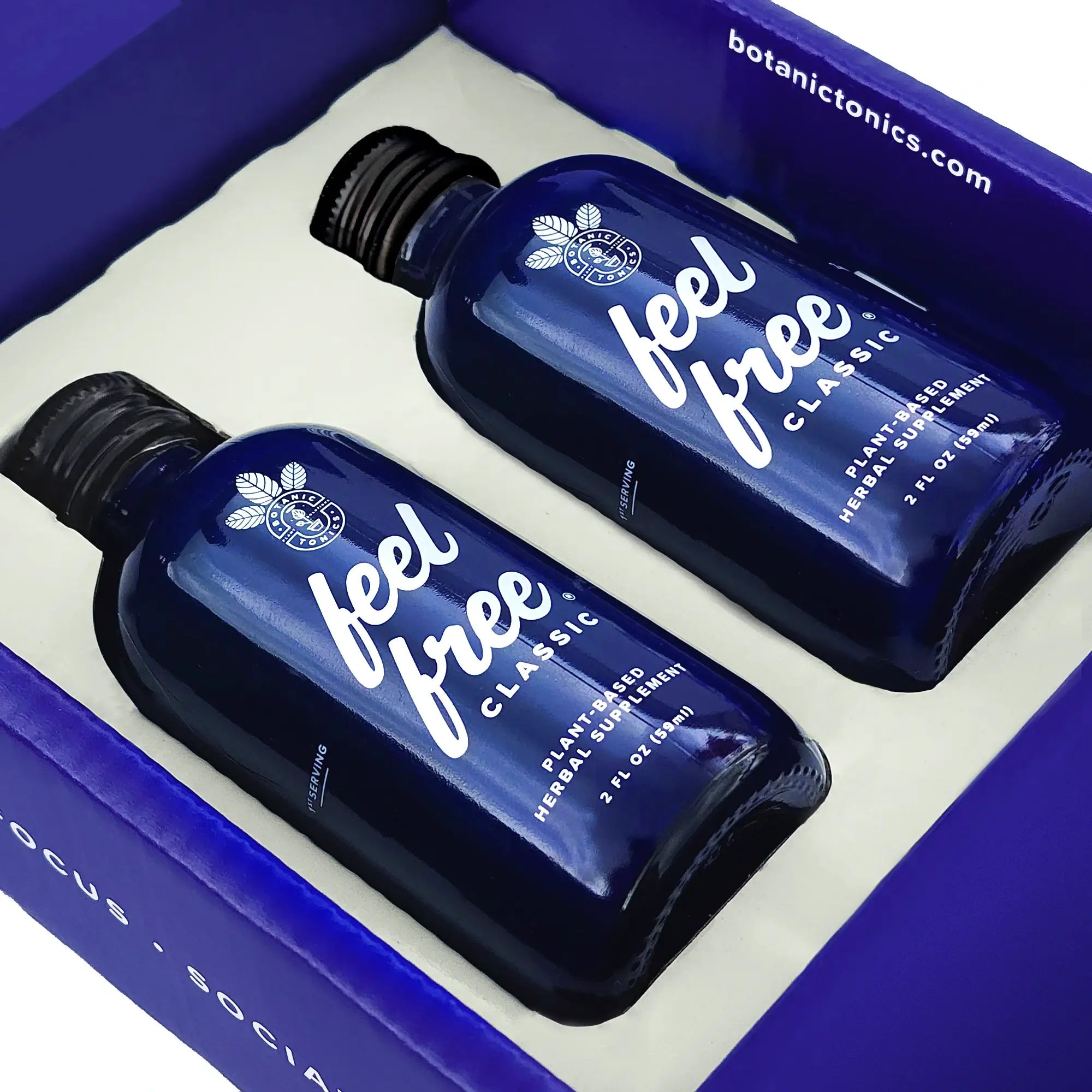Does Rhodiola Lower Cortisol?
Sometimes known as “golden root” or “rose root,” rhodiola rosea belongs to the plant family Crassulaceae and has been used traditionally in parts of Europe and Asia as well as the eastern coastal regions of North America. This yellow-flowered plant grows naturally at higher elevation and is typically found on sea cliffs or in crevices of high mountain rocks. There are a wide variety of potential benefits of rhodiola, but to name a few, it has been known to increase physical endurance, maximize work productivity, increase resistance to high-altitude sickness, minimize adrenal fatigue, and reduce stress levels through regulating cortisol and other hormones.[1]
What is Cortisol?
Often known as the stress hormone, cortisol is a hormone released by the adrenal glands that helps the body respond to stress or danger, increases metabolism of glucose, controls blood pressure, and reduces inflammation.[2] When you wake up, when you’re exercising, or when you face a stressful event, the pituitary gland signals your adrenal glands to produce the correct amount of cortisol, however, it’s not always perfect. People can produce too much or too little cortisol, which can cause other health issues which affect blood pressure, blood sugar levels, and more.
Symptoms of too much cortisol:[2]
- Weight gain in the abdomen or face
- Acne
- Thin and fragile skin
- Female facial hair and irregular menstrual cycles
Symptoms of too little cortisol: [2]
- Continual tiredness
- Nausea of vomiting
- Weight loss
- Muscle weakness
- Pain in the abdomen
Understanding Rhodiola Rosea
Based on centuries of use in traditional medicine and numerous modern scientific studies, rhodiola has been approved for its traditional use as an adaptogen. Benefits of rhodiola have been shown to improve symptoms associated with chronic stress, such as adrenal fatigue, exhaustion, and a general sensation of weakness. An adaptogen is a substance that counteracts adverse physical, chemical, or biological stressors by generating non-specific resistance.[1]
Rhodiola contains at least 140 isolated compounds that fall within 6 distinct groupings of phytochemicals, but there are three specific compounds that are thought to have the most impact on rhodiola’s therapeutic activity - salidroside, tyrosol, and the trans-cinnamyl alcohol glycoside compounds.[1] By enhancing the body’s resilience to physical and mental stressors, these compounds are able to normalize the body’s responding functions. For these reasons, rhodiola is one of the best herbal supplements to lower cortisol.
Rhodiola Rosea and Cortisol Reduction
While cortisol is a necessary hormone and does have plenty of value, heightened levels of cortisol can have a negative effect on mental performance and physical health. Studies done across the globe have continuously proven rhodiola rosea as an effective supplement to reduce cortisol levels. For example, a Chinese study done in 2009 placed participants in an endurance exercise – one group had a placebo, while the other group had rhodiola prior to the exercise. The group that had rhodiola did not experience any increase in cortisol, while cortisol levels in the placebo group rose quite sharply.[3]
Rhodiola rosea is just one of the many adaptogens that work to regulate hormones. Other adaptogens such as ginseng, ashwagandha, and cordyceps work similarly to stabilize the body and reach a state of homeostasis. Not only are these adaptogens capable of lowering elevated cortisol levels, but when you experience fatigue and cortisol levels are low, adaptogens can also increase cortisol levels to bring the body back to its normal state.[4]
Benefits of Lowering Cortisol
There are plenty of short and long term benefits of regulating cortisol levels and minimizing extended periods of time at spiked cortisol levels. In addition to reducing chronic stress, lower levels of cortisol can help protect the heart and liver, minimize risk of cancer, and boost the immune system.[3] Lower cortisol levels also have an impact on skin cells by making them more resistant to oxidative-stress, preserving skin cells’ ability to reproduce, which creates healthier and more vital skin.[3]
With lower cortisol levels, comes less stress, which comes with a host of other mental and physical health benefits. Adaptogens like rhodiola can also have a great impact on mental health, specifically with occasional stress-induced anxiety, fatigue, and insomnia.[5]
How to Use Rhodiola Rosea for Cortisol Management
Rhodiola typically comes in the form of extract and tablets and is used in numerous brands and products on the market. With the variety of what is available, it is always best to follow the nutrition facts and serving size information on the packaging, however, there are a couple good rules of thumb to follow. Typically, serving sizes refer to the often-used SHR-extract or an extract similar to that which has 4 mg of the active compound salidroside per a 144 mg tablet.[6] With daily use, smaller doses actually become more effective. For example, if you want to have rhodiola daily to prevent fatigue, 50 mg per day will probably do the trick, however, if you consume rhodiola at specific times for fatigue or as an anti-stress mechanism, a higher dose between 288 mg and 680 mg might work better for the desired effects. It is best to avoid consuming any more than 680 mg in one day as higher doses are actually ineffective.[6]
Rhodiola in moderate doses does not typically result in many side effects, however, dizziness, dry mouth, and headache have been noted in a small portion of participants during different studies.[6] There is also a high likelihood that rhodiola has other drug interactions, so if you currently take any prescription medications, it is always helpful to talk to a medical professional before adding rhodiola into your diet.
Try Rhodiola with feel free tonics
As an adaptogen, rhodiola works brilliantly to regulate the body’s hormone production and increase resistance to external mental and physical stressors. With cortisol being the primary stress hormone, rhodiola often works to lower cortisol levels or stop cortisol from spiking during times of stress, while on the other hand, during moments of fatigue, rhodiola can also work to increase cortisol levels, giving you more energy. If you’re ready to give this multifaceted plant a try, there are a variety of supplements on the market ranging from powders and tablets, to extracts and tonics. With Botanic Tonics’ feel free kava tonic, you can experience a blend of rhodiola, lion’s mane, kava, and kola nut, which creates a perfect balance of energy, relaxation, and focus that provides a great kick-start to your day.
Curious to try rhodiola and experience its many benefits? Visit Botanic Tonics.
Sources:
- The Effectiveness of Rhodiola rosea L. Preparations in Alleviating Various Aspects of Life-Stress Symptoms and Stress-Induced Conditions—Encouraging Clinical Evidence National Library of Medicine 2022 https://www.ncbi.nlm.nih.gov/pmc/articles/PMC9228580/
- The role of cortisol in the body Health Direct 2022 https://www.healthdirect.gov.au/the-role-of-cortisol-in-the-body#too-much
- Reducing the risks of high cortisol Life Extension 2023 https://www.lifeextension.com/magazine/2011/9/reducing-the-risks-of-high-cortisol
- Adaptogens The Cleveland Clinic 2022 https://my.clevelandclinic.org/health/drugs/22361-adaptogens
- Cortisol The Cleveland Clinic 2021 https://my.clevelandclinic.org/health/articles/22187-cortisol
- Rhodiola Rosea Examine https://examine.com/supplements/rhodiola-rosea/
- Stress management and the role of Rhodiola rosea: a review Taylor and Francis Online 2017 https://www.tandfonline.com/doi/full/10.1080/13651501.2017.1417442















